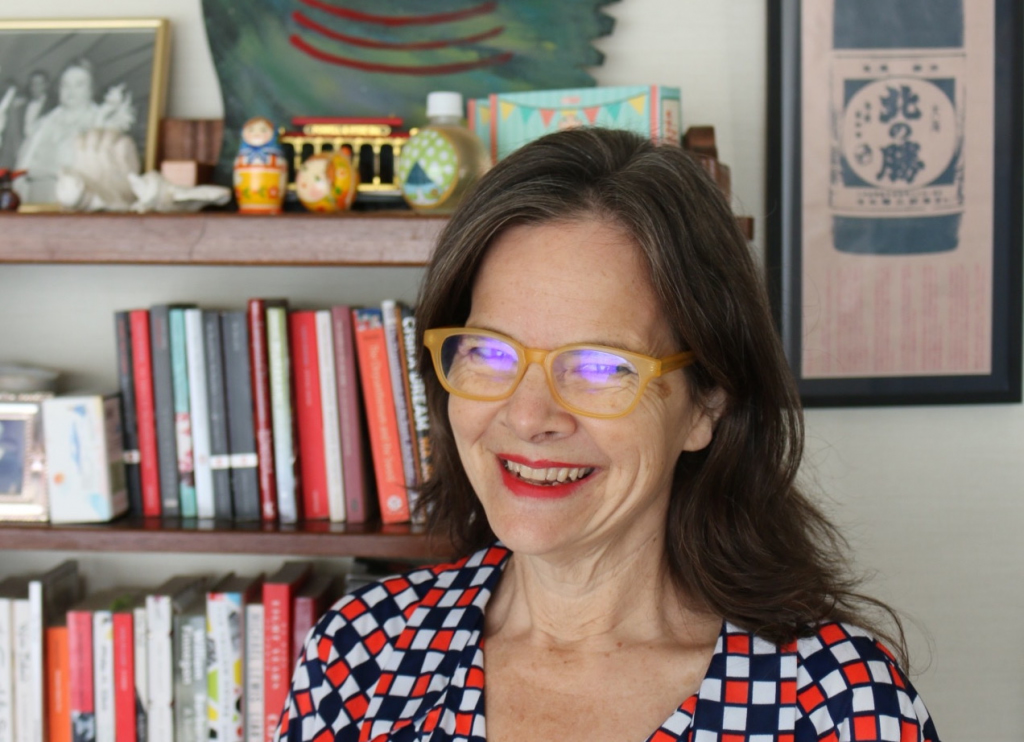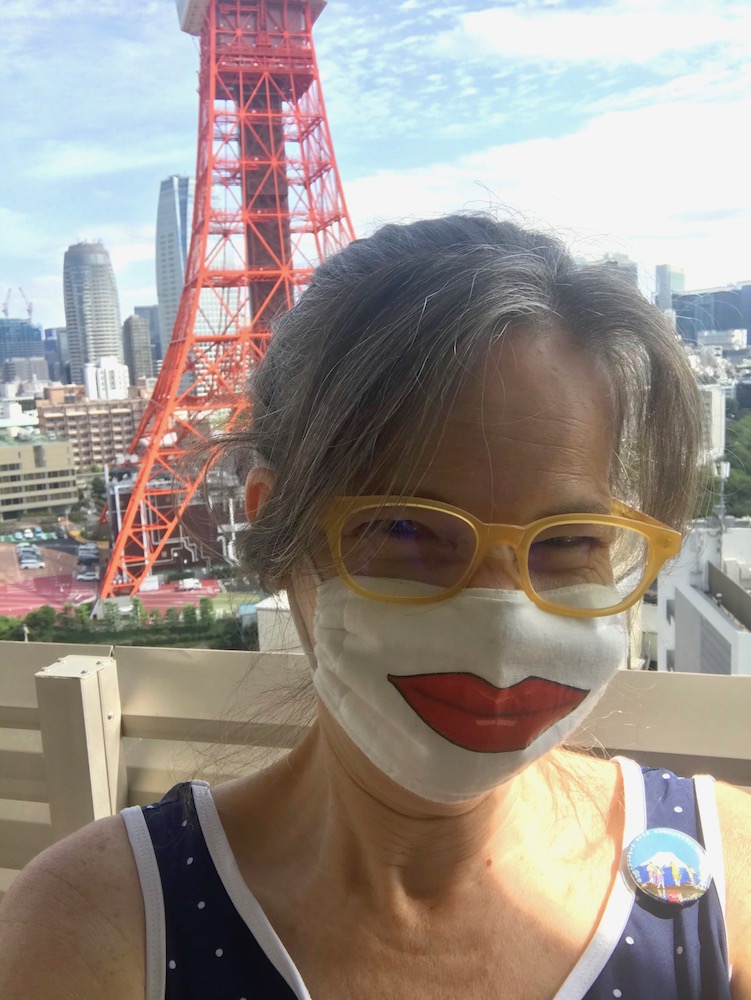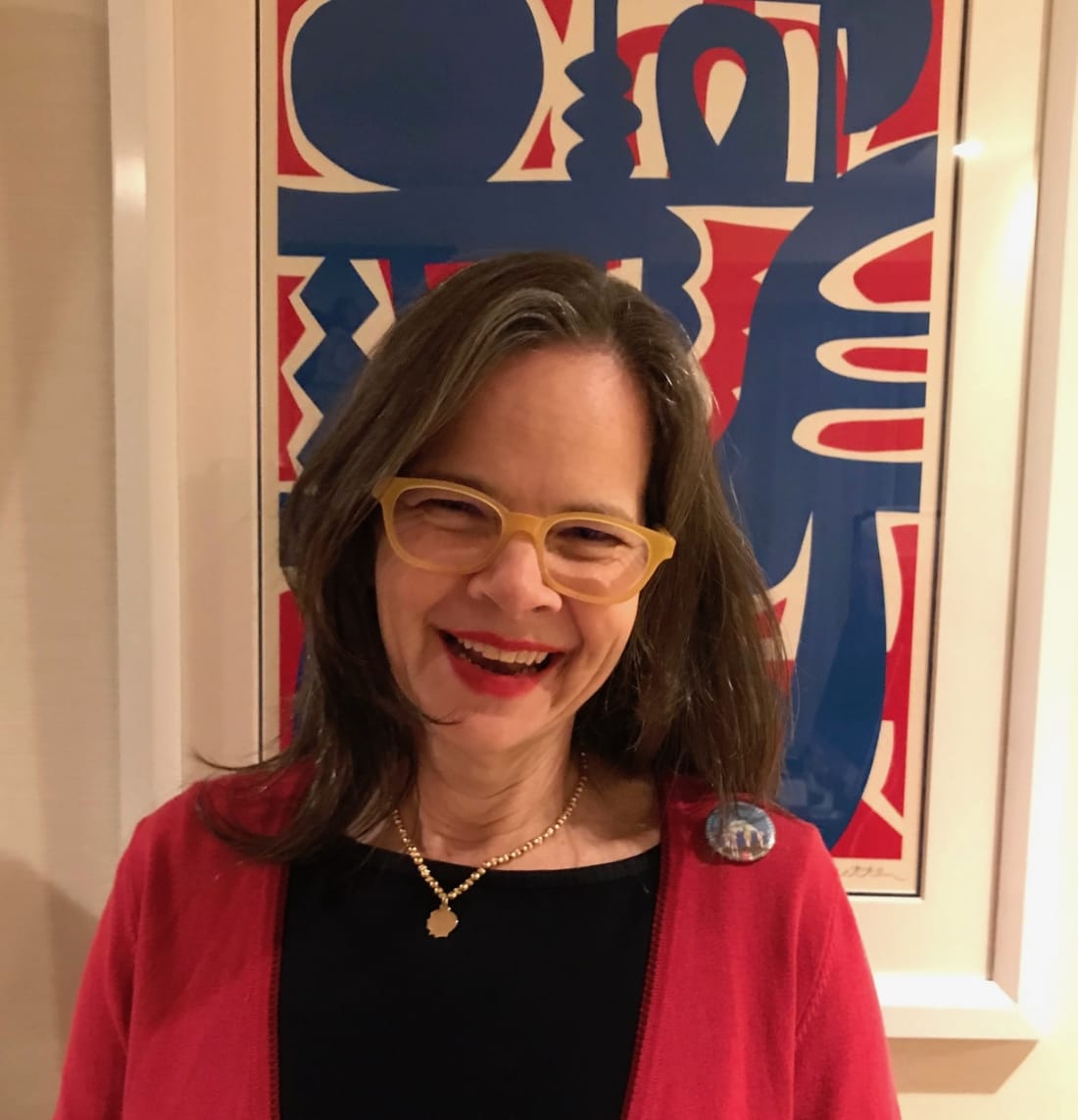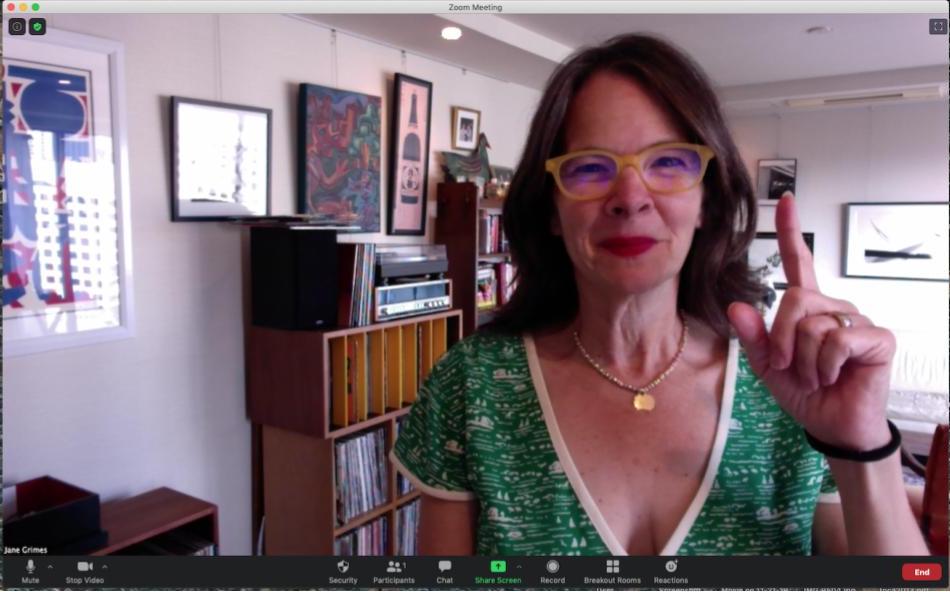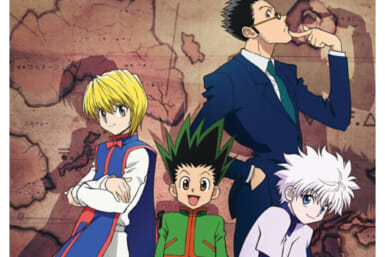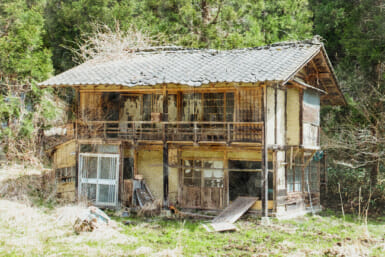It is always a pleasure to speak with Jane Grimes. With Southern charm and a go-get-‘em American attitude, the Alabama native and president of the College Women’s Association of Japan (CWAJ) led the volunteer organization through a global pandemic on shear pluck and the solid support of approximately 400 fellow members.
During Tokyo’s state of emergency, CWAJ volunteers hand-sewed and delivered more than 750 masks to various organizations. The CWAJ’s Volunteers for the Visually Impaired group transitioned all English-language classes to an online format. CWAJ also launched a new scholarship, the CWAJ Pandemic Response Nursing Scholarship – a one-year scholarship open to women who are studying nursing in the Kanto Region or at Fukushima Medical University.
“What the members give to keep their committees organized and coordinated, it’s staggering,” says Grimes during a Zoom chat with TW. “To me, the experience has been possible truly because of the power and the will of women.”
The various activities and awards are possible through donations, as well as the proceeds from annual CWAJ print show. This year, keeping social distancing in mind to help prevent the spread of new coronavirus, from October 12–31, 2020, the Open Print Art Gallery goes online.
We asked Grimes 10 questions about the challenges of running a charitable organization in Tokyo in the year 2020. As always, it was a pleasure:
1. What is your background?
I have a master’s degree in special needs education. My undergrad from Louisiana State University (LSU) is in home economics. I studied early childhood education and that fell in the home economics department, but in order to graduate from LSU I had to bake a lemon meringue pie that did not weep. I will tell you, mine did not.
2. What brought you to Japan?
The long and short of it, I met my husband in Athens, Georgia where I had decided to live once I got back from traveling for a year and a half, because it’s a cool town. We were both working at a sandwich shop. Then we moved together to New York where we lived for 15 years. During that time he started working for the [Financial Times], and he worked in the New York bureau. We had kids while we were living there, and then he got a job at the FT in London. During that time, Nikkei bought the FT. So he was then secunded to Nikkei, and we moved here in 2017. Like so many, it was going to be a one-year assignment and here we are three years in.
3. When you were coming to Japan were you planning to find a job?
No, I was hoping not to. A dear friend was the ALT – the assistant language teacher – at Tsukuba special needs high school and she was leaving. She said you are the perfect person to take my job, and I said no way, I’m not taking a job and six months later she said I really think you want my job. It’s really wonderful. It’s two days a week I teach six classes back to back…. I’m in there to be the native English speaker…. My special needs training is very broad, particularly working with people blind or visually impaired. Obviously what they do at Tsukuba is much more.
4. How did you become involved with CWAJ?
I became involved with CWAJ the same way I become involved with everything, which is completely by accident. We had just moved here and one of my husband’s colleagues said we are going to this art opening tonight, you and Jane should come with us. We went, and now I know, we created an uproar by turning up to the CWAJ opening night print show uninvited… I met a member there who is an overseas member in Hong Kong, and she was in town for the print show, and she just grabbed me and said you need to be a member. Like, yeah, yeah, whatever. She sent me an email after the show and said there is a CWAJ meeting at [Tokyo American Club] and you need to go to that meeting. Once again, I turned up at that meeting unannounced, and they didn’t have a lunch for me. I can’t believe they had anything to do with me. In any case I joined. And that was three years ago.
5. Why is CWAJ’s mission something that is important to you?
The core mission of the CWAJ is scholarship and it is easy to understand why educating women in particular is something that would matter to me, and really any woman. What I really love about CWAJ is we are women supporting women to promote education, art, community and friendship. And we’re a big unwieldly organization. We do so much, but the opportunities to actively support education, to be part of a committee that selects people for scholarships, to be part of events that raise funds for those scholarships, and then the opportunities to actively work in the community – we work with kids that are visually impaired, we work with kids at a children’s home –and then just to get to know women in Japan.
6. Now that you are president of CWAJ, what are the challenges of balancing a career, family and volunteer work in a foreign country?
It’s the usual things that it is for any woman, or any parent. It’s a matter of being incredibly lucky. My husband is supportive. Having teenagers here in Japan where they have independence. It’s the same thing as anybody else has, you are figuring out when do I have time for this, and when does this need to be done, and when does this need all my attention. But the fact is the reason that I can do it is the incredible support built into the organization of CWAJ. When I was invited to coffee and asked if I would accept the nomination for president … they pitched it as, at CWAJ we are always family-first, and actually, it is born out every step of the way. Every step of the way, I have never felt like it has been a burden because there are always three to five women I can turn to and say – hey, I’m going away for a week, can I hand this over to you? We have directors who run the committees, so all of the responsibility really is divided. It is 100 percent volunteer. What we get done is amazing.
7. With Tokyo’s expat community so diverse and ever-evolving, what are the challenges of recruiting new members to CWAJ and how do you overcome them?
As far as I know, and I don’t want to speak for other groups, but I believe membership is declining across the board. I think we have, number one, the internet to thank for that. Twenty years ago, if you moved to Japan, and you didn’t join one of these groups, how could you know anything? Now all I have to do is go to Tokyo Weekender and I can learn everything. I think the internet has played a big role. I think these groups aren’t as fundamentally necessary as they had been. Then of course, it’s relatively recent that women could work, who came over as traveling spouses. I came over and I got my part-time visa. I went over to the Minato-ku office and had that wonderful experience. Then of course many families are coming over, and husbands are the traveling spouse.
What we do to attract new memberships, everything that we can. At the print show I stood at that welcome table and grabbed every single person visiting. Our membership team had a welcome table. Word of mouth is a big one. Then one of the things we are doing, and I think in ways is thanks to this god-awful pandemic, we are getting our overseas members involved in a way that they never were before. Now for example, we are looking at having overseas members on scholarship selection committees, because they can. We never had a virtual component. You had to be in Tokyo. You had to go to the meetings. So we are looking at keeping membership more robust by doing things like that.
8. I had the privilege of attending last spring’s annual CWAJ scholarship banquet – which was held on Zoom. How did you successfully coordinate 150-plus women on a Zoom call – how did you pull that off, and what vital role did your daughter play?
That was fantastic obviously. It is our focal point of the year. Everyone loves our scholarship luncheon. But that took a lot of trial runs. My neighbors, my husband, my kids, everyone opened a Zoom window and we practiced speaking and how to do it and how to share screens. Then we had a fantastic sign up. Somebody, in almost the 11th hour, said we can invite all of our past scholars. Our past scholars are scattered across the globe, so it’s not something we think about when we are having our meeting here. So many of our past scholars came.
Then the day of, that was really something, and without Charlotte, my daughter, it would have been impossible. As participants were entering she was renaming them so we could find them when we needed them. She physically ran the spotlight feature. She had a text of everything I was saying so she knew and was ready. And thank god, she knew how to stop a screen share because one of our precious members kept sharing her screen. It was fun, because she was supposed to be studying social studies in her bedroom, and she could sort of skip school and do something different in the living room.
9. This year you will introduce the CWAJ Pandemic Response Nursing Scholarship (¥500,000). Can you tell us more about that?
That scholarship came about, our vice president, who is maybe the greatest woman alive, she gathered a meeting of officers and said one part of our mission is to respond to the needs of our community, and our community has needs. We have a health crisis. We have an economic crisis. What are we going to do? And out of that came the need for masks. Out of that came the need for English classes. And we have had a relationship with Fukushima Medical School. We offered a scholarship strictly to that school for any students who studied nursing in Fukushima. Interestingly, we voted to terminate that scholarship before the pandemic. We’re going to terminate the scholarship and then a week later… so Fukushima said we really wish you continue this scholarship, but we didn’t want to be confused with just offering it to Fukushima. So the decision was made to offer it in the Kanto region.
We are offering the scholarship in Tokyo, Kanagawa, Chiba, Saitama and we decided to include students at Fukushima Medical School, since we already had a relationship with them. This scholarship is open to women only, because it’s a broader area, and it’s open to people who are already in nursing school so they can continue. We were very concerned about economic impact and people who might not be able to continue nursing school due to an ongoing state of emergency.
10. The scholarships are partially funded through the annual print show. How have you adapted the print show to the virtual world, and how do you keep people excited about the print show after 64 years?
It’s huge. Obviously we have so much experience hanging an actual show. Zero experience hosting a virtual show. We have an absolutely, incredible IT team who have taken on this challenge. They found an art exhibition hosting website called Art Galleria…. The decision was made to offer the opportunity of participating in this online show to anyone who submitted a print. We were lucky – 231 artists selected our offer. What they had to do then was send us a digital image of their print. We have been working hard to get the word out. The way I see it, it’s going to be a learning experience. I would love to see a virtual element to print shows going forward. Clearly in 2021, we hope to hang the 64th CWAJ Print Show.
The 2020 CWAJ Open Print Art Gallery runs from October 12–31, 2020. Find details at cwaj.org/print/find-us-at-print-show/

